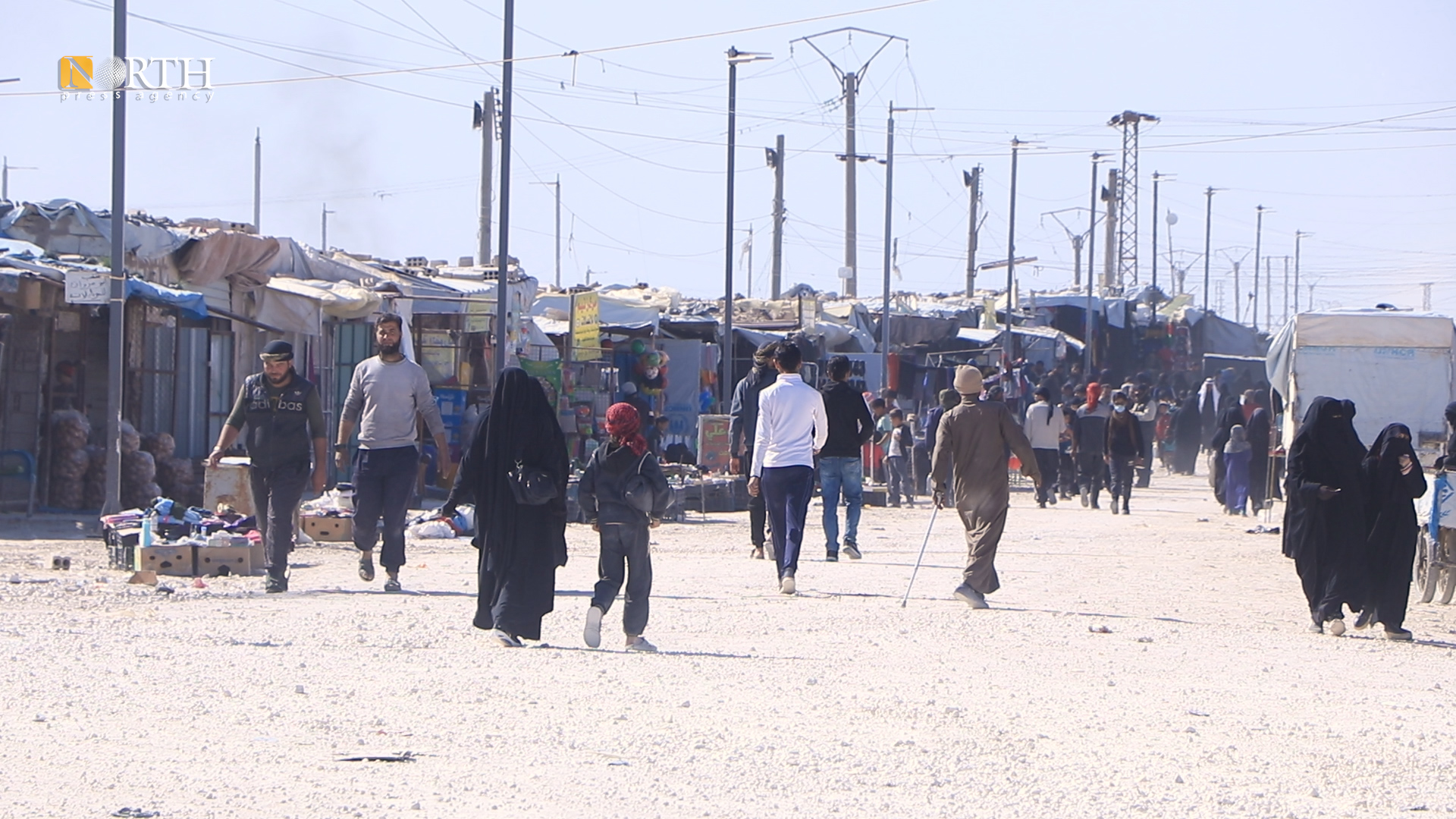Since early 2021 Hawl Camp witnesses 29 refugees’ killings
HASAKAH, Syria (North Press) – On Thursday, a security source in Hawl Camp, northeast Syria, said that since early 2021, the camp witnessed 29 murders and about ten wounded, with methods ranging from silenced pistols to beheadings.
In an exclusive statement to North Press, the source accused Islamic State (ISIS) sleeper cells of carrying out these killings “especially after an armed suicide bomber detonated his explosive belt after he was besieged by the Internal Security Forces (Asayish) on January 8.”
Those who carry out the killings exploit the overcrowding in the camp, which contains eight sectors, according to the source.
Hawl Camp houses more than 60,000 IDPs including about 10,000 ISIS wives and children.
Most of the assassinations incidents in Hawl Camp target the Iraqi refugees, who make up the majority of the camp’s population at around 30,606 individuals.
On November, unknown attackers killed head of the Iraqi Refugee Council in Hawl Camp, Suleiman Muhammad al-Hammadi a.k.a. Abu Azzam, with a silenced pistol.
Since then the Iraqi Council that used to run the Iraqi’s issues in the camp was dissolved fearing for its members of being targeted.
Iraqi refugees are demanding to be repatriated to their homelands in the light of the increasing killings and deteriorating economic conditions that the families are witnessing.
However, their demands were faced with refusal, as in February, Undersecretary of the Iraqi Ministry of Immigration Karim al-Nouri explained that Iraq did not wish to repatriate its citizens, citing the security risk they posed.
Additionally, most countries refuse the idea of repatriating their citizens, the latest of which was the UK’s refusal to repatriate Shamima Begum, the infamous “ISIS bride.”
On February 26, UK’s top court refused to repatriate Begum after it revoked her British citizenship after she joint ISIS in Syria.
During the past three days, four Iraqi refugees were killed in the camp with silenced pistols.
So far Asayish, which carry out security tasks, have not identified the way in which weapons enter the well-guarded camp.

